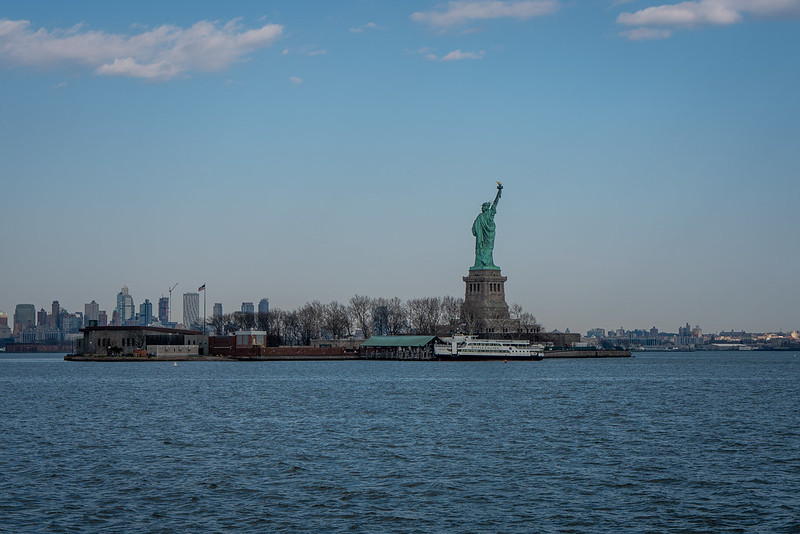Not so long ago, before the internet, organizing international travel was quite a challenge. Aligning transportation, lodging, and money required a good deal of knowledge and a lot of patience.
Finding seats and making flight reservations was a task for specialists in Sabre, an arcane 1950s computer system. Paying for them — at least for a middle-class family — required many months of savings. Tying together hotel reservations, bus schedules and car rentals was hard. And before traveling you would have to go through the ritual of the traveler’s checks: printed on crisp security paper, each check would be signed at the travel agent’s or at the bank and again when used. Travelers lived in fear that the signatures would not match and the check would be rejected. It was a source of a certain pride to finally receive the bundle of checks packed in their plastic wallet, carefully hidden in inner pockets or money belts, along with the plane tickets, mysteriously printed in multiple copies on thin red carbon paper.
In the midst of this complexity were travel agents: sociable individuals, easy with words, their job was to lubricate the process, interpreting travelers’ hopes in light of what was possible, pushing them to take the tour for which they would receive the best commission but at the same time mobilizing a network of contacts to ensure that everything came together smoothly. They were indispensable in reducing travelers’ anxiety and solving the problems that arose from such a tangled system. So much so that airlines and hotels were willing to pay their commission.
I fondly remember going with my parents to Mundirama, a travel agency where René de León, an affable friend and neighbor, would welcome us. Each successful transaction was sealed with a blue leatherette travel bag, on one side the Pan American logo and on the other the agency’s brand.
Travel agencies have almost completely disappeared. The Internet, with its instant connections, vast databases, and infinite memory wiped them out, replacing their role one link at a time.
This came to mind as I read that the White House has inaugurated a new chapter in the persecution of migrant smuggling between Central America and the United States. Vice President Harris herself, during her visit to Guatemala, unveiled joint task force Alpha that will deal with the issue. They seem all set to repeat with human trafficking the error of the approach to drug trafficking, despite half a century of failures.
And this is what makes travel agencies and their painless extinction such a good lesson. Among traffickers in persons —the coyotes— you will surely find horrible people and no doubt some of them commit the worst abuses against their vulnerable victims. But in principle they are nothing more than travel agents that reduce friction in a complex market to arrange the transfer of people from point A (say Chiantla, Huehuetenango) to point B (Los Angeles, for example). Their quick tongue and network of contacts makes everything come together. And the stakeholders —in this case the long-suffering migrant families— value their services enough to pay their commission.
The old travel agencies […] went away without border patrol operations, without having to search for the roots of tourism. It was convenience that extinguished them.
However —and this is key— the old travel agencies disappeared without prohibition or persecution, without withdrawing licenses or banning their registration. For sure you could find charlatans and frauds among the travel agencies. But they went away without border patrol operations, without having to search for the roots of tourism. It was convenience that extinguished them.
Today travelers do everything, pay without complaint and, hopefully, without trouble. What’s more, businesses now keep the money formerly paid in commissions! Of course, travel agencies resisted change. But today their sector has disappeared, replaced by another even larger, more diverse and more lucrative industry: from Airbnb, through the multiple boutique hotels advertising on Expedia, all the way to exchange networks such as Home Exchange, everybody has found a business niche on the internet that put travel agencies out of work.
So before giving free rein to the alpha males, with their alpha task forces and their alpha solutions, always ineffective but above all harmful, people in the US government would do well to reflect: humans migrate. This is what humans do, they migrate. And human behaviors — well targeted and served in a more perfect market — produce economic opportunities for everybody involved.
Illustration: Lady Liberty turns her back. (2021, own photo).
[1] People in the security industry have a worrying fixation on the first letter of the Greek alphabet. It may be because of the concept of the “alpha male”, in itself a bad sign when seeking solutions to any problem of human coexistence.

